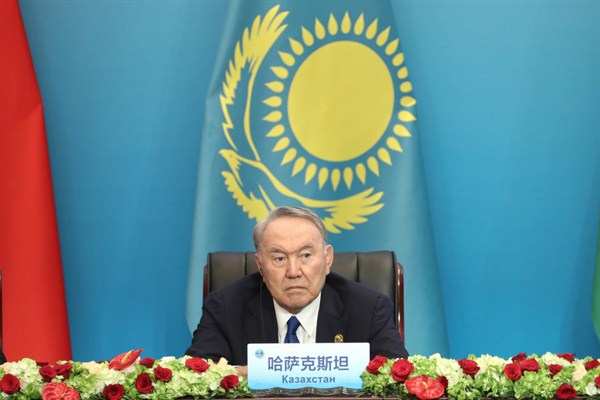Since he turned 78 in July, Kazakh President Nursultan Nazarbayev has appointed a number of new ministers to his Cabinet, fueling speculation about whether he will run for another term in elections scheduled for 2020. Such speculation is not new in Kazakhstan, but given Nazarbayev’s advanced age, observers fear that without a clearly defined succession plan, the country’s stability could deteriorate. In an email interview with WPR, Paul Stronski, a senior fellow in the Russia and Eurasia Program at the Carnegie Endowment for International Peace, discusses Kazakhstan’s political outlook.
World Politics Review: What is driving Nazarbayev’s ongoing Cabinet reshuffle?
Paul Stronski: There has been a fair amount of change in the senior ranks of the Kazakh government since August, with Nazarbayev appointing a new defense minister, finance minister, head of the presidential administration, secretary of the country’s Security Council and mayor of Astana, the capital, along with several other lower-level personnel changes. In July, Nazarbayev also became chairman of the Security Council, a position he can hold for life. Recent legislative changes have transformed the Security Council from an advisory body to one with greater power to craft and implement state policy, so it truly is a government in flux. However, Kazakhstan’s political system is quite opaque, so it is not clear what exactly is driving these changes. This lack of transparency creates a robust rumor mill about the rise and fall of various Kazakh political factions, and swift changes inevitably foster speculation that Nazarbayev is preparing for succession. All of this may or may not be true.

